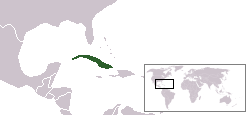 W
WThis list contains links to lists with the common and scientific names of butterflies of North America north of Mexico.Papilionidae: swallowtails and parnassians Parnassiinae: parnassians Papilioninae: swallowtails Hesperiidae: skippers Pyrrhopyginae: firetips Pyrginae: spread-wing skippers Heteropterinae: skipperlings Hesperiinae: grass skippers Megathyminae: giant-skippers Pieridae: whites and sulphurs Pierinae: whites Coliadinae: sulphurs Dismorphiinae: mimic-whites Lycaenidae: gossamer-wings Miletinae: harvesters Lycaeninae: coppers Theclinae: hairstreaks Polyommatinae: blues Riodinidae: metalmarks Nymphalidae: brush-footed butterflies Libytheinae: snouts Heliconiinae: heliconians and fritillaries Nymphalinae: true brushfoots Limenitidinae: admirals, sisters and others Charaxinae: leafwings Apaturinae: emperors Morphinae: morphos Satyrinae: satyrs Danainae: milkweed butterflies and clearwings
 W
WGossamer-wings are the smallest butterflies. Their wingspans range from 0.5-2.0 inches (1.2-5.1 cm). There are about 7,000 species worldwide with about 139 species in North America. Gossamer-wings include the subfamilies hairstreaks, harvesters, coppers, and blues. Their flights vary from the fast, erratic hairstreaks to the slow, bouncy blues. They like to feed at flowers, and males like to puddle at damp ground. Most male gossamer-wings locate females by perching, while some males patrol. The turban-shaped eggs are usually laid singly. The larva is oval shaped with a flattened underside. Some species have honeydew glands that attract ants. Ants like to eat and collect the honeydew made by the caterpillar. In turn, the ants will swarm over anything that might try to harm the larva. The chrysalis is usually formed in leaf litter. Many chrysalises can make faint noises. Scientists believe this noise might ward off predatory ants.
 W
WSwallowtails are the largest butterflies. They range in size from 2.5–6.4 inches (6.5–16.5 cm). There are about 600 species worldwide with about 31 species in North America. All swallowtails have tails on their hindwings. Their flight is slow and gliding but, when disturbed, their flight can be quite strong and rapid. They like to feed on various flowers, dung, and urine, and males like to puddle on damp ground. Most male swallowtails locate females by patrolling, and some males perch. The eggs are round and usually laid singly on different kinds of host plants. The larvae have a reddish-orange forked gland, called an osmeterium just behind the head. When frightened, the larva thrusts the gland out releasing a foul odor that will sometimes deter a predator. Many young swallowtail larvae resemble bird droppings. The chrysalis of most species is brown or green and looks like a leaf or branch. It is held upright by a silken loop around the middle called a girdle. The swallowtails overwinter as a chrysalis.
 W
WWhites and sulphurs are small to medium-sized butterflies. Their wingspans range from 0.8-4.0 inches (2-10.2 cm). There are about 1,000 species worldwide with about 61 species in North America. Most whites and sulphurs are white, yellow, and orange with some black, and some may be various shades of gray green. Their flight is mostly slow and fluttering, but some of the larger species have quicker flights. Both males and females like to feed at flowers, while males also like to puddle on damp ground. Male whites and sulphurs locate females by patrolling. The eggs are spindle shaped and laid singly. Most of the long-slender larva are green or yellow. The chrysalis is usually triangular or cone headed. It hangs upright supported by a silken loop around the middle. The overwintering varies with species. It may be larva, chrysalis, or adult.
 W
WThis is a list of butterflies of Belize. According to a recent estimate, there are about 700 butterfly species in Belize.
 W
WThis is a list of butterflies of Canada.
 W
WThis is a list of butterflies of the Cayman Islands. According to a recent estimate, there are 52 butterfly species found on the Cayman Islands. The abbreviation (Es) is used to indicate endemic subspecies.
 W
WLepidoptera of Cuba consist of both the butterflies and moths recorded from the island of Cuba.
 W
WFifty-five species of butterflies have been officially recorded in Dominica, an island-nation in the Caribbean Lesser Antilles.
The Lepidoptera of Hispaniola consist of both the butterflies and moths recorded from the island of Hispaniola, comprising the two sovereign nations of Haiti and the Dominican Republic.
 W
WThis list of Lepidoptera of the Dutch Caribbean includes the butterflies and moths that have been recorded from the Dutch Caribbean, consisting of the islands of Aruba, Sint Maarten, Curaçao, Bonaire, Saba and Sint Eustatius.
 W
WLepidoptera of Greenland consist of both the butterflies and moths recorded from Greenland.
 W
WThe Lepidoptera of Guadeloupe consist of both the butterflies and moths recorded from the island of Guadeloupe.
The Lepidoptera of Hispaniola consist of both the butterflies and moths recorded from the island of Hispaniola, comprising the two sovereign nations of Haiti and the Dominican Republic.
 W
WThis list of butterflies of Jamaica lists butterflies recorded from the island of Jamaica.
 W
WThis is a list of butterflies of Mexico. According to this list, there are 2,045 butterfly species present in Mexico.
 W
WThis is a list of butterflies found in the U.S. state of Oregon.
 W
WThe Lepidoptera of Puerto Rico consist of both the butterflies and moths recorded from the island of Puerto Rico.